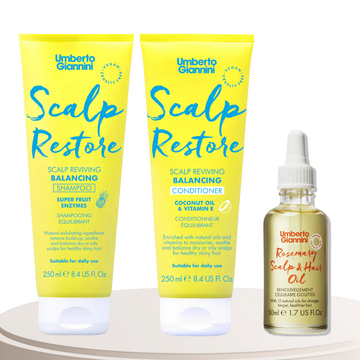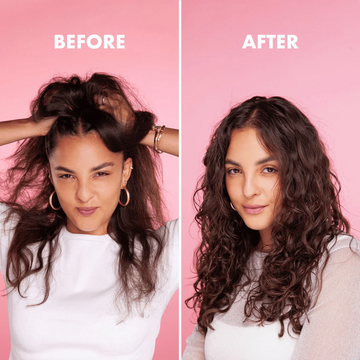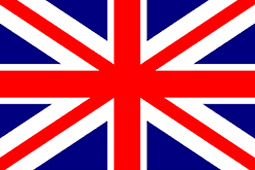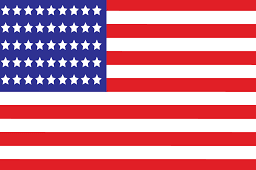Are silicones bad for your hair?
Silicones have gotten a bit of a bad rap in recent years, with many people actively avoiding them in their hair care regimes. But, not all silicones are created equal, and not all silicones are bad. So why are so many of us avoiding them?
Throughout this article, we’re going to explore the science behind why silicones are used in hair products and how they can benefit certain hair types, along with some advice from Umberto Giannini Founder (and silicone-lover), Claire Shread.
What are silicones?
Silicones are a type of synthetic emollient (water-repelling ingredients) used to seal moisture into the hair. Other types of emollients include oils, butters and waxes. Silicones add a protective layer to the hair, which helps increase shine and reduce friction (bye-bye, frizz and tangles!).
Common types of silicones used in hair care products include dimethicone and amodimethicone.
Are silicones bad?
Claire says: “Silicones are perfectly safe to use on your hair. Whether or not they benefit you all depends on your hair type and how you like to style it.”
What are the benefits of silicones?
Silicones are used in product formulations for various reasons:
Lock moisture in
While many people avoid silicones because they can prevent moisture (water) from penetrating the hair shaft, when used correctly, they also work in the opposite way and lock moisture in, keeping the hair hydrated.
Prevent frizz
“Because of the way silicones coat the hair shaft, they’re particularly good at locking moisture into dry hair and helping to control frizz. For some hair types, there’s nothing that controls frizz better than silicones, particularly where blow-drying and heat styling have damaged the hair shaft, or the natural hair texture is prone to expanding in humidity.” Says Claire.
Add slip
Silicones help reduce friction and increase comb-ability, so you’ll often see silicones used in products like conditioners to help with detangling.
Add shine
The film that silicones add to the hair helps smooth the hair and add shine.
Protect from heat and UV rays
Dimethicone and amodimethicone are often used in heat protectant products because they form a heat-dispersible film over the hair.
Do silicones build up on the hair?
In some cases, silicones can build up on the hair. Silicone buildup is most common in fine hair that’s easily weighed down and in hair that’s strictly co-washed. If your hair seems heavy and limp, this could be a sign of buildup. However, bear in mind that it’s not just silicones that can build up on the hair. While you may be using a product that contains silicones, it could be another ingredient causing the limpness.
How to remove silicones from your hair
You may have heard that the only way to remove silicones is by using a sulphate-containing shampoo; however, this isn’t strictly true. There are various types of silicones, some that are water-soluble and some that aren’t.
Water-soluble silicones: When a silicone begins with the term ‘PEG’ or ‘PPG’ in an ingredients list (e.g. PEG-12 Dimethicone), this means it’s water-soluble and can (in most cases) be removed with just water or your regular cleanser.
Non-water-soluble silicones: Silicones that aren’t water-soluble will need a slightly stronger detergent to remove them. While sulphates like sodium lauryl sulphate do a good job of removing silicones, they’re not the only ingredient that can successfully do so. For example, cocamidopropyl betaine, found in many Umberto Giannini cleansers, is a less harsh detergent with the ability to remove silicones.
Why Umberto Giannini uses silicones (and which lines you can find them in)
Many of the benefits of silicones make them great for keeping naturally dry hair hydrated, which is why you’ll find them in the Umberto Giannini Curl Repair line, among others. “We use silicones in a small selection of our products when a silicone-free formula wouldn’t be as beneficial or effective.” Says Claire.

*Not all products within the ranges contain silicones, for individual product details please see the product pages.
Now that you know all about silicones (and most importantly, that they aren’t bad for your hair), it’s up to you to decide whether or not to introduce them into your hair care routine. However, if you’re not ready to do so yet, lots of the Umberto Giannini ranges contain silicone-free options!
Written by Hannah Cook (@hanzcurls)







 UK
UK US
US